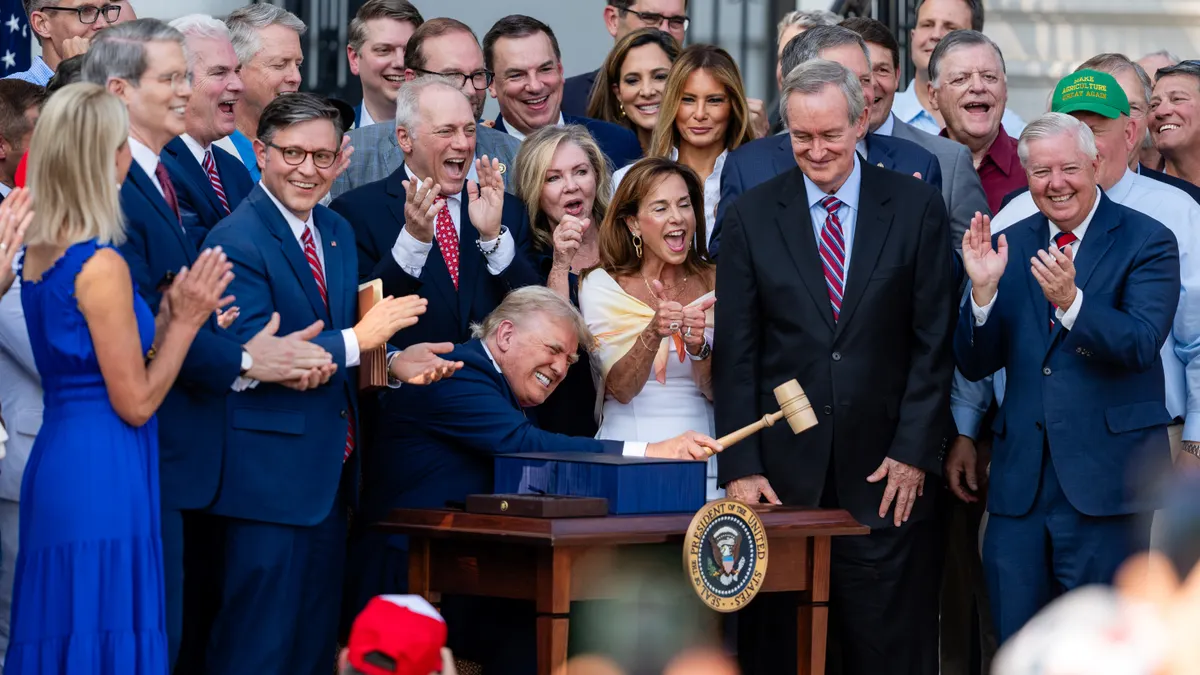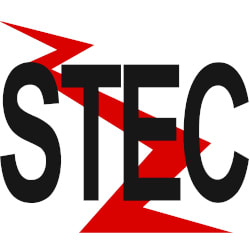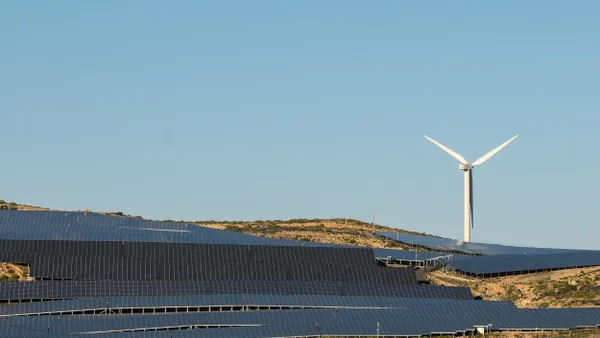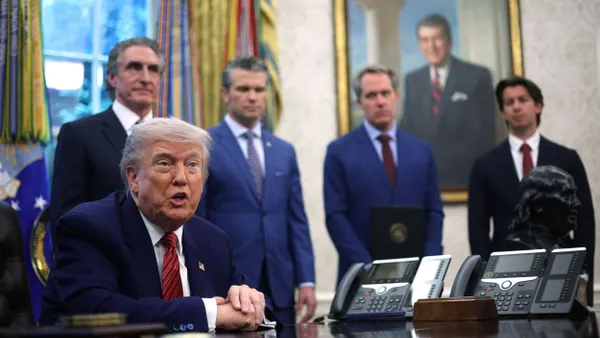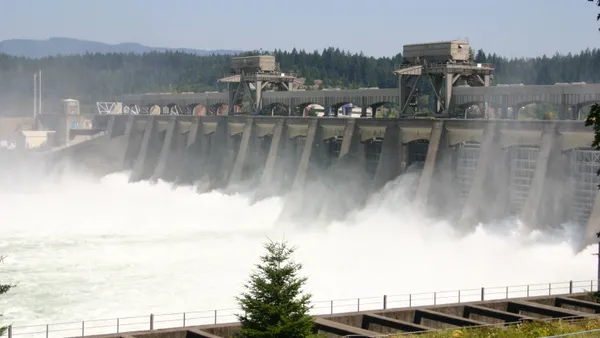Dive Brief:
-
Tuesday's elections delivered mixed results for clean energy on the state level, with wins for renewable power supporters in key governors races tempered by the failure of high-profile ballot initiatives in Arizona and Washington.
-
In Arizona, voters resoundingly rejected a 50% renewable energy mandate opposed by utilities with nearly 70% of the vote. In Washington, they appear poised to reject a proposed fee on carbon emissions for a third time, though results were still rolling in Thursday morning.
-
In Nevada, voters gave preliminary approval to a 50% renewable energy mandate, but rejected a proposal to break utility NV Energy’s monopoly. The night also included wins for gubernatorial candidates who have endorsed 50% renewable energy standards or higher — in Illinois, Colorado, Nevada, New Mexico and Maine.
Dive Insight:
Victories for renewable power supporters in key governors races could mean a more favorable environment for clean energy across a number of states, even as closely watched ballot initiatives floundered Tuesday.
In Illinois, Democrat Governor-elect J.B. Pritzker has called for the state to reach 50% renewables by 2025 — doubling the ambition of the current 25% standard — and 100% renewables by 2050. Illinois currently gets about 6% of its power from renewables, and it remains unclear how Pritzker will square his plan with the state's nuclear fleet, which currently provides the state with more than half of its electricity.
The speed of Pritzker's plan is surpassed by that of Democrat Governor-elect Jared Polis in Colorado, who has called for 100% renewable energy by 2040 along with programs to expand distributed energy resources and efficiency. The clean energy supporter sailed to victory even as Coloradans rejected a ballot measure that would have put stricter locational limits on oil and gas drilling in the state.
In New Mexico, Democrat Governor-elect Michelle Lujan Grisham's plan falls in between, calling for 50% renewables by 2030 and 80% by 2040. Clean energy policies could also see advances in Maine, where Democrat Governor-elect Janet Mills has endorsed a 100% clean energy goal by 2050 and advocates to expand distributed generation after years of fights over rooftop solar with outgoing Republican Gov. Paul LePage.
In Nevada, Democrat Governor-elect Steve Sisolak pinned his energy plan to the successful clean energy ballot initiative, which would amend the state's constitution to mandate 50% renewables by 2050.
In each of those states, the newly elected governors will come into office with one-party rule — Democrats controlling both houses of the state legislatures — which may make it easier to enact their energy agendas. If that happens, it could mean fewer costly fights over clean energy ballot initiatives in the future, which delivered mixed results Tuesday night.
| State | Ballot Initiative | Result |
|---|---|---|
| Arizona | Prop. 127: 50% renewable energy portfolio | FAIL |
| Nevada | Question 3: Retail choice | FAIL |
| Nevada | Question 6: 50% renewable energy portfolio | PASS |
| Washington | Initiative 1631: Carbon fee | PROJECTED FAIL |
Nevada voters endorsed the 50% renewable energy ballot initiative — Question 6 — with nearly 60% of the vote, but must approve it again in 2020 for it to go into effect. They also rejected a proposal to open Nevada’s retail electricity market to choice — which first passed in 2016 — by a nearly two-to-one margin.
Ballot initiatives in Nevada and Arizona pitted incumbent utilities against outside forces. NV Energy opposed the renewable energy and retail choice initiatives in Nevada, while large casinos pushed to break the utility’s monopoly and climate activists led by billionaire Tom Steyer pushed for the 50% mandate.
Steyer's group won its initial battle in Nevada but lost badly in Arizona, where it spent more than $24 million to support a constitutional amendment for 50% renewable energy. Incumbent utility Arizona Public Service outpaced even that, spending more than $30 million against Proposition 127, making the race one of the most expensive anywhere in the country.
Additionally, two George Public Service Commission races seen as central to clean energy and continued nuclear development in the country remained close contests. GOP incumbent Chuck Eaton acknowledged his race with Democrat Lindy Miller extended into runoff elections to be held on Dec. 4. Miller raised more than $1.25 million in contributions for a typically down-ballot race. The race for his fellow Republican commissioner Tricia Pridemore has not been called yet, although news outlets reported the possibility of a runoff race there as well. Pridemore and Eaton support the Vogtle nuclear expansion, and the latter voted in favor of a cost increase for the project, which is billions of dollars over budget.
Iulia Gheorghiu contributed reporting.
CORRECTION: A previous version of this article misstated the results of the two Georgia PSC races. The District 3 race between Eaton and Miller has been extended to a runoff election while the District 5 race has not been called yet.



